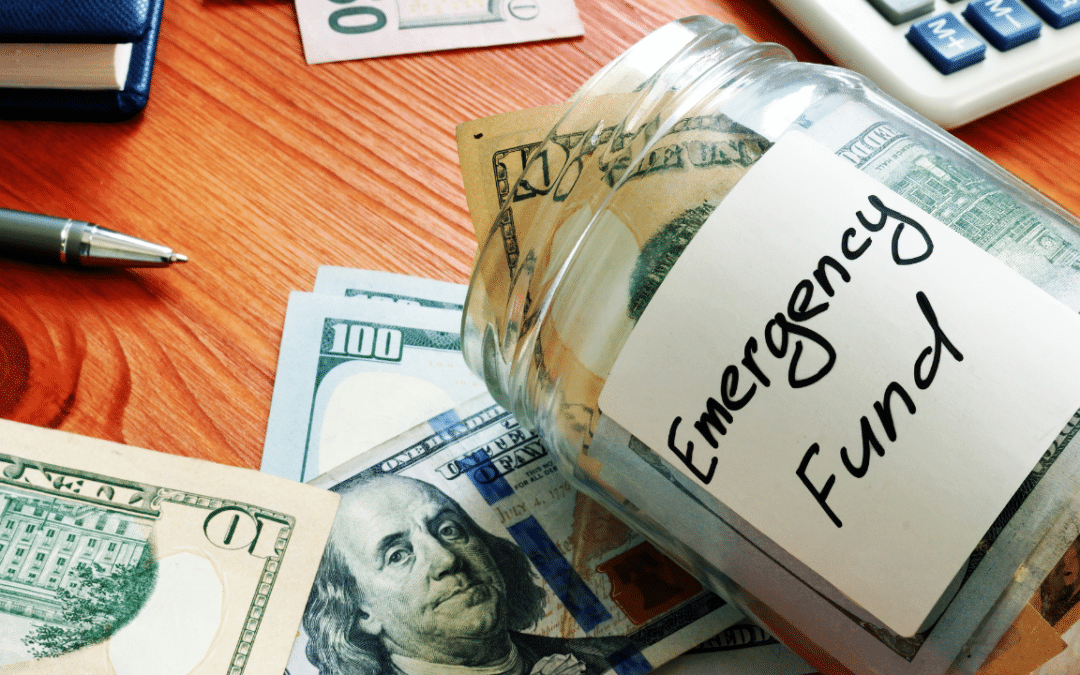If there’s one thing military life has taught you, it’s to always expect the unexpected. When it comes to personal finance, budgeting can only get you so far. It’s the unexpected expenses of life that can turn your world upside down, from events such as a job loss, medical emergency, home repairs, or unplanned travel expenses — and they always come at the worst times.
That’s why it’s so important to have an emergency fund, especially as the threat of a recession looms over our heads.
What Is an Emergency Fund?
An emergency fund is a cash reserve you specifically set aside for unplanned expenses or financial emergencies. Some common examples of things you might use your emergency fund on include car repairs, home repairs, medical bills, or a loss of income.
In general, emergency funds can be used for large or small unplanned expenses that are not part of your routine monthly cash flow.
Who Needs an Emergency Fund?
No one is immune to emergencies — even servicemembers who are thought to have very stable job situations. Some may be forced out of the service through a force reduction or may experience layoffs and reductions in the civilian workforce after a transition or retirement.
In these situations, some military families may be tempted to rely on credit cards, loans, or even pull from retirement funds to cover costs; which can set them backwards and turn into high-interest debt. A better option is to start building an emergency fund.
How Big Should Your Emergency Fund Be?
When you’re ready to decide how big your emergency fund should be, most experts recommend you consider setting aside three to six months’ worth of your salary. However, since your emergency fund is only meant to keep you financially afloat for a while, it might be smarter to base the size of your emergency fund on the amount you normally spend during a three- to six-month period.
How to Calculate Your Monthly Expenses
When you’re calculating how much money to have in your emergency fund, the first step is to calculate your monthly expenses. Go through credit card and bank statements to see what you spend, on average, per month. Be sure to include all fixed expenses, such as rent/mortgage and utilities. Ignore any expenses that are not essential, such as vacations and entertainment. The idea here is that, if you lose one income for a period of time, you will be able to cut back on certain expenditures until your income is stable again.
Helpful Tip: If you have a spouse earning a second income, you won’t need to keep as much money in your emergency fund as would someone else who is the sole provider for their family. In their case, it is important they determine the bills their income will cover and calculate how much extra they would need per month to sustain themselves.
Where to Keep an Emergency Fund
Because you may need the money in your emergency fund at a moment’s notice, you’ll want to be able to withdraw cash without any potential for delay or penalties. Here are a few options for storing your emergency fund:
- Online savings account
- Money market account
- Bank or credit union savings account
- No-penalty or short-term certificate of deposit (CD)
- Treasury bills and I-bonds
- Roth IRA
Alternatively, if you own a whole life insurance policy, you may be able to tap into its built-up cash value as a source of funds in an emergency. Unlike a bank loan, you don’t have to pay back a loan against cash value and withdrawals are tax-free up to the amount of the premiums you have paid. But, it’s important to understand that borrowing against your policy’s cash value will gradually reduce the death benefit your loved ones receive.
Have there been times where you wish you would have an emergency fund to pull from? How did you end up covering emergency expenses?



